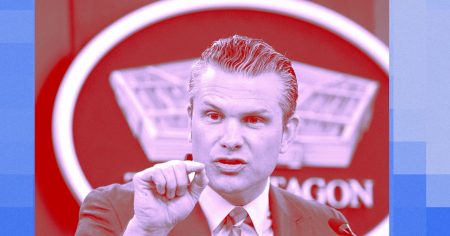Shashi Raghunandan, CEO of Oaken, is a part-time problem solver, painter and writer and a full-time husband and dog lover.
According to the American Farmland Trust, between 2001 and 2016, America lost about 2,000 acres of farmland and ranchland every day. This means in that time, we lost about 10 million acres of farmland. Meanwhile, the USDA reports 943 million acres of farmland in 2001, compared to 893 million acres in 2022. Whatever the number, this is sizeable.
To put this in perspective, we are talking about feeding approximately 20 to 40 million people annually from the farmland that we have lost. This is true not just in the U.S. but globally! Many countries have lost farmland over the last few years. They have lost it to urban development, alternate energy and soil/water degradation.
In 2022, I took a field tour of several farms in the U.S. as part of a venture studio program. It struck me that every single morsel of food that we consume has a link back to farmland in some way. According to the Food and Agriculture Organization of the United Nations (FAO), 95% of all food that we eat is produced on land. I had never really appreciated this connection, and my interest has only grown over time as I studied farmland practices, leases, ownership and fertility globally.
I discovered a whole new world that made me appreciate the linkages between farmland, food, health and the environment, with farmland serving as the cornerstone of that linkage, and the more it amazed me, the more concerned I got. So I set up a company to solve this challenge, with a mission to connect farmland to their best stewards—the farmer—and, through that, stem this decline in farmland.
The Importance Of Farmland
Farmland is deeply rooted in the national psyche. Not only is it a source of food security, and wealth creation, but it also fosters recreational activity and supports environmental diversity.
Today, farmland is a significant portion of the balance sheet of the farms in America, a more than $3 trillion asset. It absorbs close to 770 million tons of CO2 annually and supports a bewildering array of plant, insect and animal species that all rely on its abundance. In the U.S., farmland employs about one in 10 people, and it generates 5.4% of our country’s GDP. And yet farms have been on the decline over the last 30 years.
How Companies Can Help
Farmland is an important, non-regenerative national resource. I think we need an all-hands-on-deck approach to solve the challenges leading to its decline.
From a policy perspective, we can do more to further programs that reward entry-level farmers to join the industry with capital and land access. Additionally, we can take coordinated action to heighten the level of the discussion around this challenge to the forefront of climate, energy and food security. Non-governmental agencies like the American Farmland Trust are critical to the ecosystem in building data, advocating policy measures and raising awareness.
From a private sector perspective, much more can be done. CPG companies can provide greater incentives for farmers to steward farmland well. While more than 175 organizations and companies endorsed the Growing Climate Solutions Act, which aims to guide farmers toward the carbon-offset “green rush,” a recent study by Purdue University has highlighted that only 6% of corn and soybean growers said they have engaged in discussions with companies about receiving payments to capture carbon on their farms, while just 2% said they had signed a carbon contract. Much has been done, but clearly much remains.
Carbon markets offer just one lever to keep farmland productive and fertile. To stem the decline, we need to put in the work in the farmland transition and investment side. In the U.S., the American Farmland Trust estimates that 371 million acres of farmland could transition in the next 15 years to the next generation; and with data from 2014 showing that 39% of the farmland in the U.S. is leased, it is critical to ensure that this transition does not lead to further decline to urban development.
Business leaders can create new tools and innovate to connect farmland to farmers, drive investment into this sector and make capital access easier. Financial services and the real estate industry have seen an influx of new technologies that have transformed how we understand financing, invest in new instruments like fractional ownership (of stocks, for example), connect with stakeholders in the ecosystem, and use data.
Companies like mine and Acretrader, Camo Ag, Fractal and Farmer Business Network are working hard at this challenge of ensuring there is transparency in the farmland financing space. We need greater innovation and more companies listening to the needs of this industry and innovating here.
We can all chip in, but it requires coordinated and holistic action. We need more eyes, ears and brains on this challenge, and as with the great problems of the past, our best minds can find solutions, given the resources. I recommend leaders talk more about this challenge and frame it in the context of feeding a larger population and higher inflation.
The day I found out where my food came from, I was a different person. I decided to take action to stem this decline. As leaders, we can all get involved, or bear the risk of not having anything to eat in the future!
Forbes Business Council is the foremost growth and networking organization for business owners and leaders. Do I qualify?
Read the full article here










